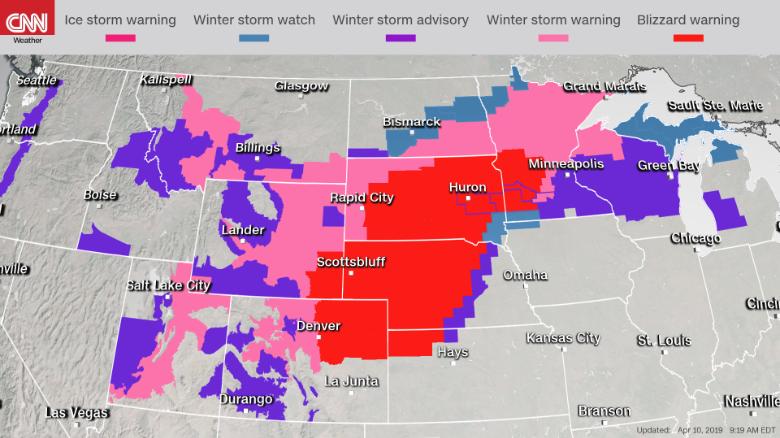‘Bomb Cyclones’ Battering the Rockies and Great Plains
The ‘bomb cyclone’ is expected to heavily impact the Rocky Mountain and Great Plains regions of the US.
April 15, 2019
On April 10, 2019, the second ‘bomb cyclone’ was predicted to impact the Western portion of the US throughout the week, making travel nearly impossible.
A bomb cyclone is a storm that rapidly grows in strength, reaching certain criteria within, 24 hours. The first bomb cyclone (nicknamed Winter Storm Ulmer) of the year passed in mid-March, triggering record-breaking flooding in the Great Plains and damaging winds in the portions not affected by snowfall. National Oceanic and Atmospheric Administration (NOAA) Weather Prediction Center meteorologist Bryan Jackson said it is not unusual to have at least one bomb cyclone-level storm a year.
As of Wednesday morning, four million people are under a blizzard warning from Colorado to Minnesota. The weather was so bad that by Wednesday evening, the Minnesota State Patrol had responded to 213 car crashes. the National Weather Service and transportation officials throughout the region are warning citizens to stay off the roads.
Frontier and United airlines are allowing passengers of Plains-bound flights to change their tickets at no charge. Frontier later stated that customers who canceled their flights due to the storm may also request a refund. Approximately 740 flights to Denver International Airport alone have been canceled.
The warm portion of the storm has the potential to bring about strong winds, hail, and tornadoes for parts of Kansas, Nebraska and Iowa. Iowa governor Kim Reynolds urged citizens to prepare for flooding.
While the northern states in the region are facing a destructive snow storm, New Mexico has experienced wind gusts up to 75 mph according to CNN meteorologist Taylor Ward, meaning potential hurricanes in the coming days. The National Weather Service said that high winds and dry conditions in the region could also potentially develop into wildfires.


